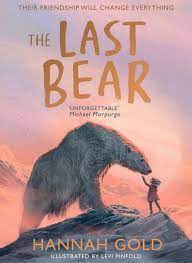Klara and the Sun, by Kazuo Ishiguro.
Nobel and Booker Prize-winner Kazuo Ishiguro has brilliantly demonstrated yet again the sad and sick society we live in with his chilling new dystopian novel, ‘Klara and the Sun’. It is a cautionary tale, surely, the human race would never metamorphose into a society so terminally ill – would it?
Sometime in the near
future we meet Klara. Klara is an AF, an
Artificial Friend, a life-size human copy, a machine operating on solar
power. She sits in a shop, expecting
eventually to be sold to a family who would purchase her to be a companion for
their child. She is a super-intelligent
machine who is capable of expert and intellectual thought, the ideal companion
for children whose parents can afford her.
She’s not the latest model, being a B2;
B3s are even more versatile and sophisticated, but she hopes to be sold
to a family who will be kind and appreciative of her special gifts – for Klara is special: she has a treasured relationship with the
sun, Giver of all Life, and it warms her heart to see it through the shop
window travelling each day across the sky.
She sees other things too, that confuse her about humans: where are they all going in such a hurry, and
why? And why is there pollution
everywhere?
One day a young,
disabled girl stops in front of the shop window, and tells Klara that she’s The
One, the one that Josie wants as her companion.
There’s something very wrong with Josie – not in her essence, but physically; she is enormously intelligent, but her body
is failing her and as Klara spends more time with the family it becomes
horribly clear that genetic manipulation has occurred (now the norm in this
society), but it hasn’t worked for Josie.
She is dying. The effects on the
family have been tragic: the parents are
now divorced and blaming each other for everything; Josie’s best friend Rick hasn’t been
genetically manipulated, he’s physically sound, but won’t have the same
opportunities in life for that reason.
Klara’s heart (if she was built with one) aches for them all and,
because she believes utterly in the healing power of her God the Sun, she requests
Him to let Josie get better, so that she can have a normal, happy life with her
friend Rick.
But what is
happiness? Klara only knows that Rick
and Josie long for it, as do their families.
There must be some way that she can help – because that is what she has
been programmed to do: to help.
And the way Klara helps
is the ultimate act of unselfishness, only to be repaid by the caprices of
human nature. Kazuo Ishiguro has
demonstrated yet again his enormous skill in portraying society in all its
guises – and self-destructiveness. His beautiful Klara will stay with us all
long after we have read the last page. SIX STARS.



